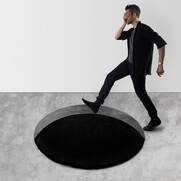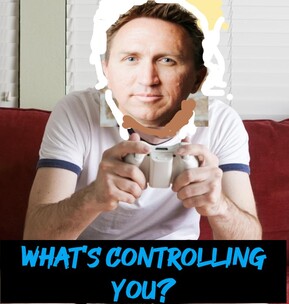 Big changes can come from just a small deviation in behavior. This little article is short, sweet and completely valid. Are you ready to read something that will be helpful for the rest of your life? Stop saying, "I know". Sure, it's an easy thing to say because you may very well KNOW but when you delete this from your vocabulary, people will connect with you more. The substitution that triggers the magical connection hormone 'oxytocin' is, "you're right". Here's why it works; turns out that people really like being...right! Think about it - it's actually WHY you're in the habit of saying "I know" in the first place. Another reason replacing "I know" with "you're right" helps so much is because you're showing humility...and people love it. Lastly, saying "you're right" gives a covert message that you are confident. Saying "I know" a lot speaks volumes. Most of that volume is filled with the message of, "I'm not confident!" You know it's true; anyone saying, "I know" repeatedly happens when whoever's knowing everything wants to feel good about themselves. And honestly, nobody likes a know-it-all. You'll have better relationships when you tweak this one little communication. Thanks for taking the time to read and don't forget to check out the website for ongoing therapy goodness. www.meaningtolive.com Till next time, awareness UP. Jed Thorpe, CMHC
0 Comments
 There are pros and cons to being a therapist. A huge pro is getting to connect with all kinds of interesting people and some my BEST memories have been with clients working through substance abuse. Addicts. And almost every time they start with the same question, “what is your D.O.C.?” My answer, “Diet Coke”. For those of you unfamiliar with substance abuse culture, “D.O.C.” stands for “drug of choice” and it’s a very common question intended to build a connection with others and the truth is, diet coke IS my DOC. Here’s the thing: we don’t have to be addicted to a mind altering substance to be “an addict”. In other words, you’re probably an addict…ignorantly. You’re an addict and you didn’t even know it! If you don’t believe me, I’ll prove it – actually, you’ll prove it. Look it up! Online (because everything online is accurate), you’ll quickly discover that an addiction can be to substances (the one you’re used to), activities or things. Our society typically balks at this suggestion Did you? Being an ignorant addict is no bueno. It’s like breathing polluted air without knowing it – you’ve no clue that your lungs don’t work as well as someone living in Midway, Utah! Side note, pollution also causes your lungs to age quicker than clean air lungs. Awareness is like a breath of fresh air…but what does this have to do with addiction? I’ll explain. Being addicted is similar to being a slave. Being dependent is having to rely on or being controlled by someone or something else (again, it’s all online). Fun fact: Roman Gladiators were given “slavs” (people captured from Slavic countries) as servants – abd they called slaves “addicts”. Just as air pollution restricts our lungs ability to expand, slavery restricts our ability to be free. Technically, if our emotional wellness (or freedom) is tied to anything external, we are restricted – we are slaves – addicts. Remember, people can be addicted to substances, activities or things. We may be addicts without even being aware. Actually, I have yet to meet anyone who’s NOT an addict of some type. Oh, they may not have the obvious ‘substance’ addiction symptoms but they absolutely display emotional withdrawal symptoms of an addict…which leads to the next question: what am I addicted to? Ignorant addicts. If you want to identify an addict, take away their drug. Substance withdrawals are ugly and will feel like an intense flu for the heroin user…so intense that they’ll do anything NOT to experience the harshness. Side side note: people don’t actually die from opioid (ie: heroin, pain pills, morphine, etc) withdrawal. One can pass away from the sudden stop from using other drugs – looking at you alcohol and/or benzodiazepines (xanax, klonopin, etc). In other words, sustained substance use creates a physical dependence in our physical bodies which, in turn, creates a physical disturbance when the drug stops playing nice – or stops playing at all. Either way, it’s not a good scenario. Remember how addiction can be to substances (see above), activities or things. Our emotions react negatively when we’re addicted (dependent) on activities or things. Emotional withdrawal looks like the following:
Do any of those negative emotions look familiar? Do you experience these negative emotions when something is missing in your life? If you answered “yes” to any of the above questions, you are an addict. Welcome! And buckle up, we’re not done, yet. Wherever you feel dependent; there’s your drug of choice (DOC). For some, it’s acceptance and they’ll be a chameleon – ever changing to whomever is around. Other people experience high anxiety if they aren’t in a relationship. Many ‘empty nesters’ suddenly feel depressed when their DOC (parenthood) vanishes as kids leave home. A huge DOC correlates to what people do for work and when they retire, their ‘golden years’ turn into years of feeling like they don’t matter anymore. In all these circumstances, people were emotionally dependent on their masters. They were ignorant addicts; emotionally enslaved. They were addicted to a particular thing or activity. Living life as an addict is scary. In couples therapy, people gain awareness around how they attempt to control access to their DOC (the spouse). They’ve built up an emotional-wellness tolerance that leans too much on the other person and WATCH OUT if their drug threatens divorce! Chaos. Life-shattering. Newsflash, it isn’t really ‘love’ when we’re addicted to another person. The healthiest relationships are the ones that don’t need the other person to be emotionally stable. The couple in this scenario can actually choose to be in the partnership verses need the relationship in order to feel ok. The list of less-obvious addiction is long. People emotionally enslaved (addicted) to sex (penile/vaginal acceptance), gambling, hiking, surfing and genuinely, the list really is too long to get through – so let’s end with my favorite culprit. Most everyone I know is subject to this next master. It’s the subtle presence of MONEY. Didn’t think of that one, did you? It’s a pretty big and very distinct owner of many, many people. Maybe even yourself. How do you feel when you think you don’t have enough of it in the bank. If you don’t know, just refer to the list of emotional withdrawal above. Ha, and you thought you owned it. When we are dependent, we are in bondage. I like talking about financial addiction because people get…well, squirmy. We don’t like thinking of ourselves as addicts, yet – here we are, completely identifying with the alcoholic. It’s good awareness, really. Plus, it completely explains why people put aside their personal values and work for mean, abusive bosses or unethical companies. They’re dependent on their DOC; money. There are other DOC’s involved in staying in a bad work environment. They could be addicted to prestige or job title that comes along with the job. They need other people to perceive them in a certain way – and just like the meth-head, they’ll do just about anything to keep their drug of choice close by. This is a different concept, yes – and it’s valid. We become slaves when we’re emotionally dependent on anything outside of ourselves. And now, with a little more understanding, we get to have more empathy for the ‘obvious’ addict because when it comes down to it, we – aren’t – any – better. We are all the same. Well done reading this! I hope it got you thinking and don’t forget to check out the website for more therapy goodness. www.meaningtolive.com Till next time, Awareness UP. Jed Thorpe, CMHC |
Archives
June 2024
|
Proudly powered by Weebly
 RSS Feed
RSS Feed